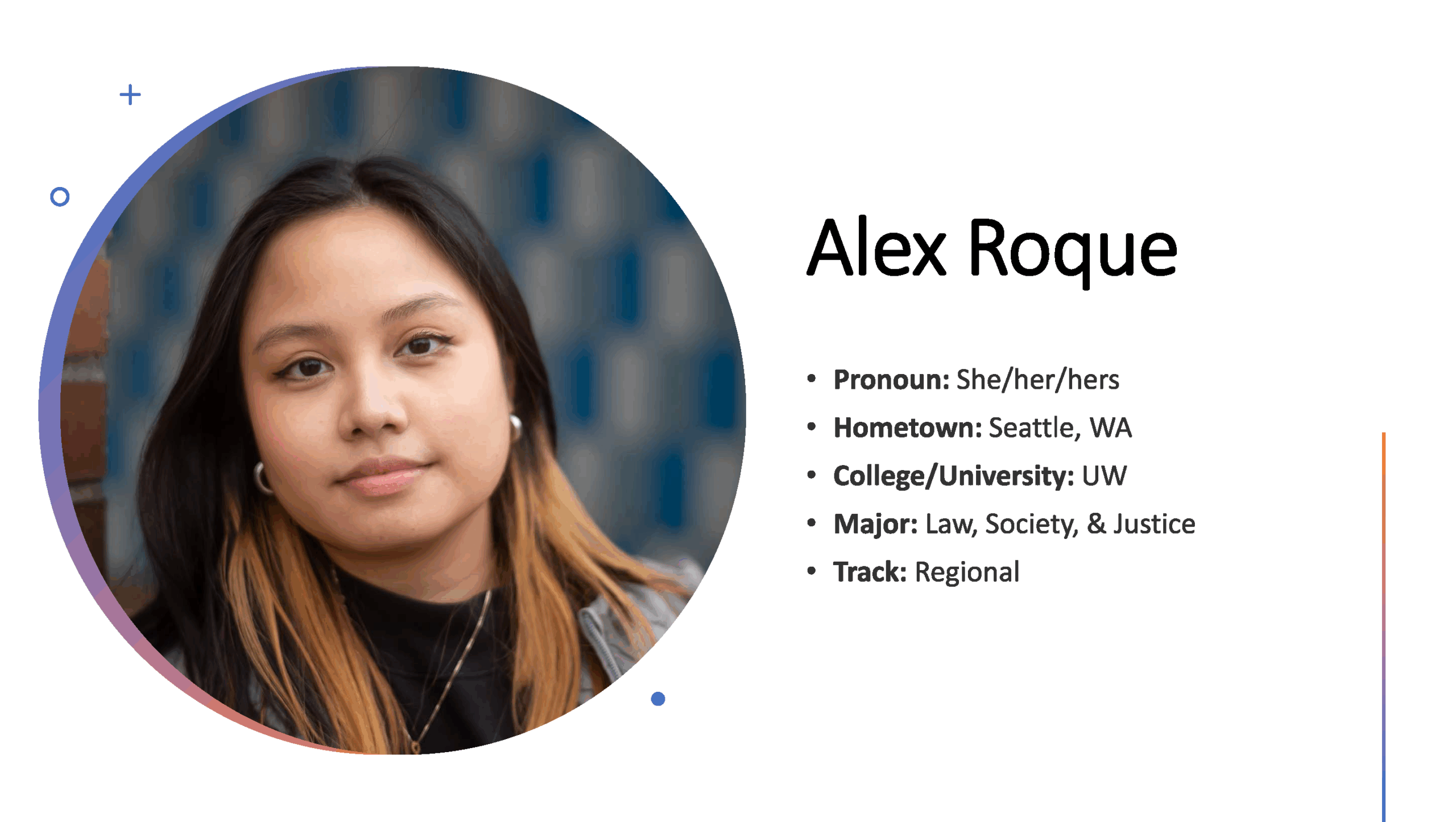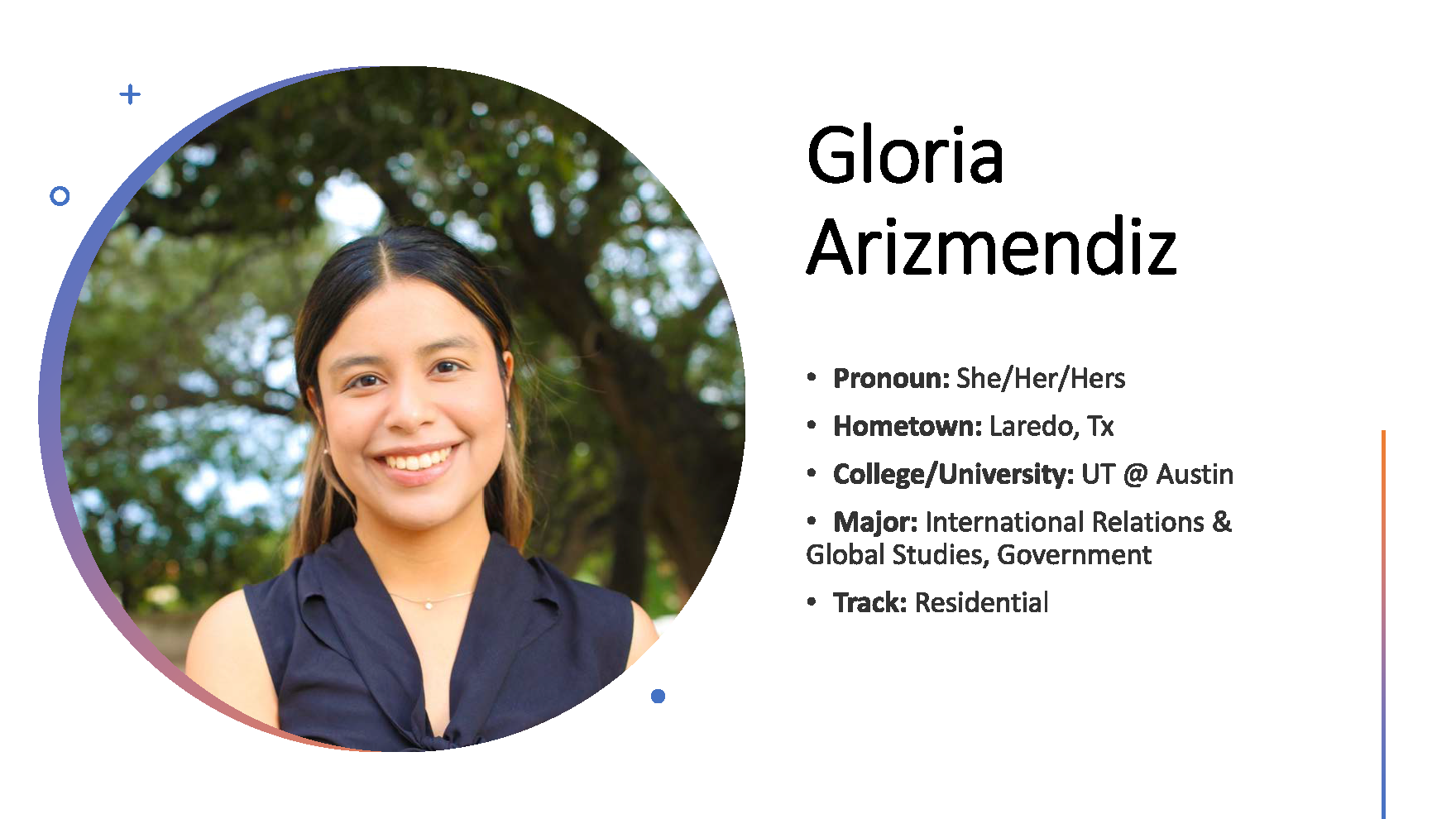
JSI Scholar: Gloria Arizmendiz


Izzy Sederbaum’s research has been getting a lot of attention lately. In the past few months, he has received funding awards from the University of Wisconsin at Madison’s Institute for Research on Poverty (IRP), the Russell Sage Foundation, and the University of Washington’s Population Health Initiative to study how administrative burdens affect transgender people in the United States. It’s enough support to fund two full quarters. But more importantly, the funding means that there are other people who are excited about his research.
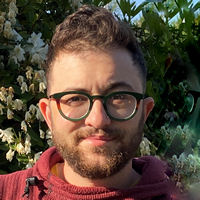
After completing his MPA at the Evans School in 2014, Izzy spent five years as a researcher working with jurisdictions around the country to rethink their approaches to youth incarceration, both at the Center for Court Innovation and the Vera Institute of Justice. While working with these institutions, he often tried to get a sense of how queer kids were moving through the justice system only to be told repeatedly that there simply weren’t any.
Interested in asking his own research questions, Izzy decided to pursue a Ph.D. and started back at the Evans School in Fall 2019. In his second year, he took a course on organizational theory with faculty member Benjamin M. Brunjes, who introduced him to academic literature on administration burden. Izzy noticed that literature failed to mention trans communities and people, despite their often precarious living situations and need for safety net programs.
As Izzy dug deeper, he noticed that many common technical fixes to administrative processes weren’t solving problems for trans people trying to navigate government systems. He noticed that no one was asking trans communities about the challenges they were facing or how administrative processes might be improved.
His dissertation is just the first step into making more accessible policies.
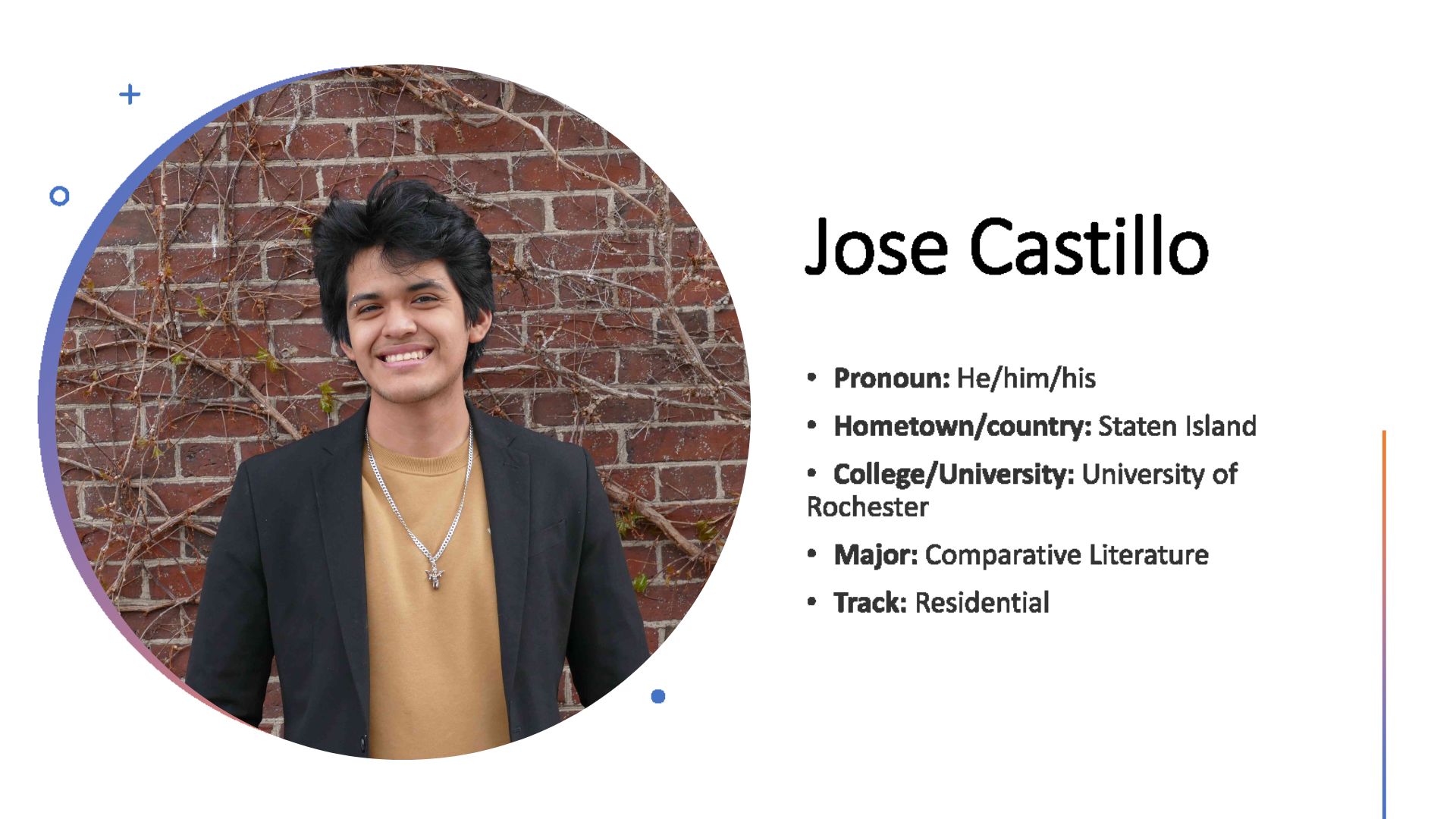
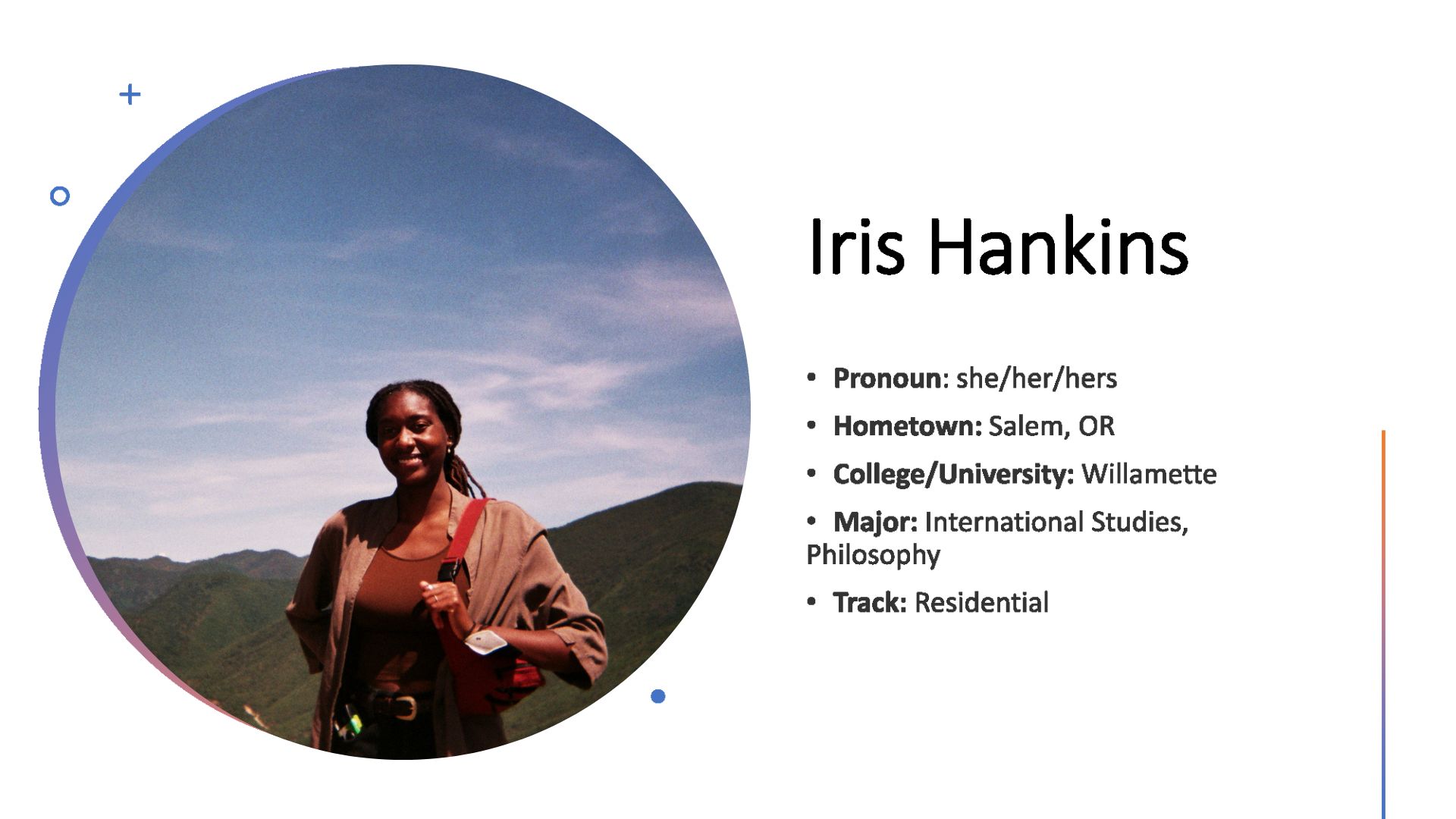
Various anti-colonial and revolutionary activist encourage me to think about public service as a career. I think it is imperative for everyone’s wellbeing to engage in public service whenever they can. And more importantly, to question our policies and who they actually serve.
Across four days, eight counties, and 906 miles, we heard leaders from across the state share one consistent message: the importance of educational pathways to public service for Central and Eastern Washington communities.
In mid-May, Dean Jodi Sandfort and I embarked on a road trip through Central and Eastern Washington with stops in Quincy, Moses Lake, Yakima, the Yakama Nation, Spokane, and Leavenworth. Over four days, we were grateful to connect with more than 40 community and tribal leaders, elected officials, and UW and Evans alumni. Our goals were to strengthen relationships with local leaders across the state and learn how the Evans School can partner with them to serve community needs east of the Cascades.
Our first stop in Quincy included dinner with community leaders from Moses Lake hosted by Washington State Representative Alex Ybarra, a lifelong Quincy resident and member of the Evans School Dean’s Council. During our stay we talked about the need to equip the next generation of local public leaders and Rep. Ybarra gave us a tour of the new Quincy High School. Built in 2019, the school serves close to 800 students with state-of-the-art learning environments and an extensive Career and Technical Education Department.

Dean Jodi Sandfort and Rep. Alex Ybarra at Quincy High School
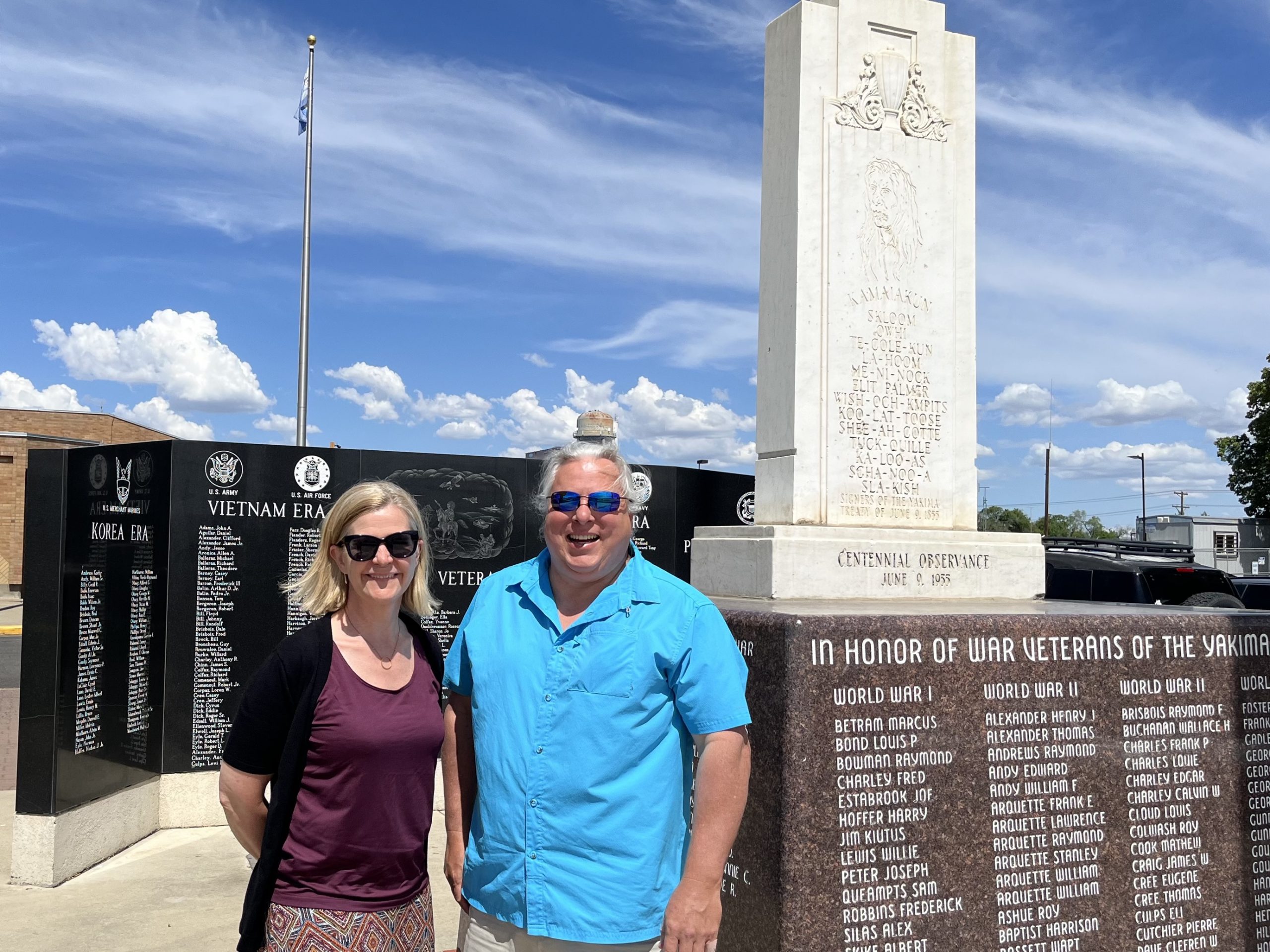
Dean Sandfort with Dean’s Council Member and Evans alum Paul Ward on the Yakama Nation
The next day, Tribal Council members and other Yakama leaders welcomed us at Yakama Nation Headquarters. We were joined by Paul Ward, an enrolled member of the Yakama Nation, long-time leader in fisheries and river habitat management, Evans alum, and member of our Dean’s Council. We explored potential partnerships that could serve the Yakama Nation through educational pathways for undergraduate students and emerging mid-career leaders.
In Spokane, we met Annmarie Caño, Dean of the College of Arts and Sciences at Gonzaga University to share about our Junior Summer Institute and discuss the importance of summer immersion programs, especially for students from historically marginalized communities. We also hosted an evening reception with community and elected leaders as well as UW and Evans alumni.
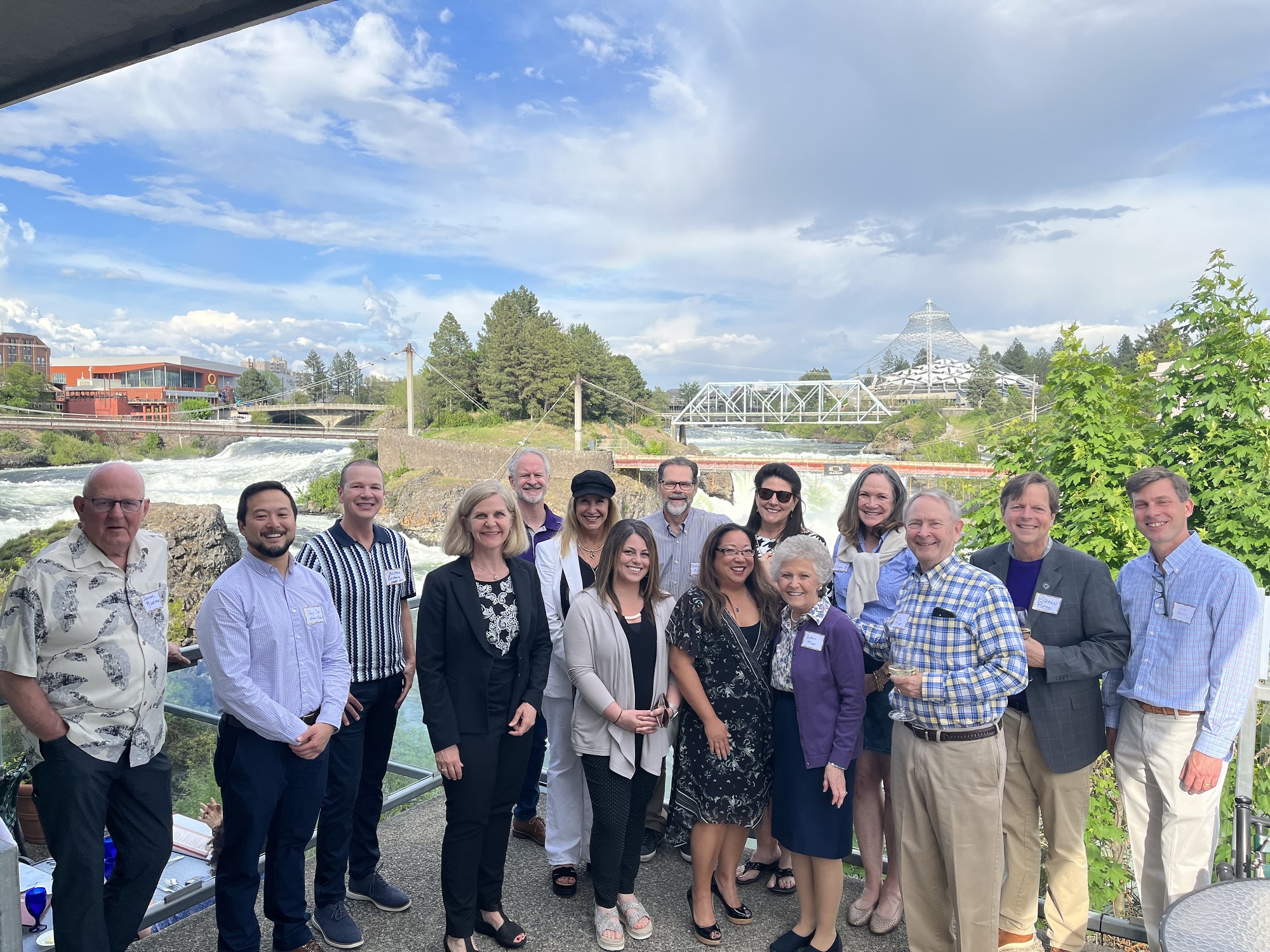
(above) Spokane Reception attendees, the author second from left
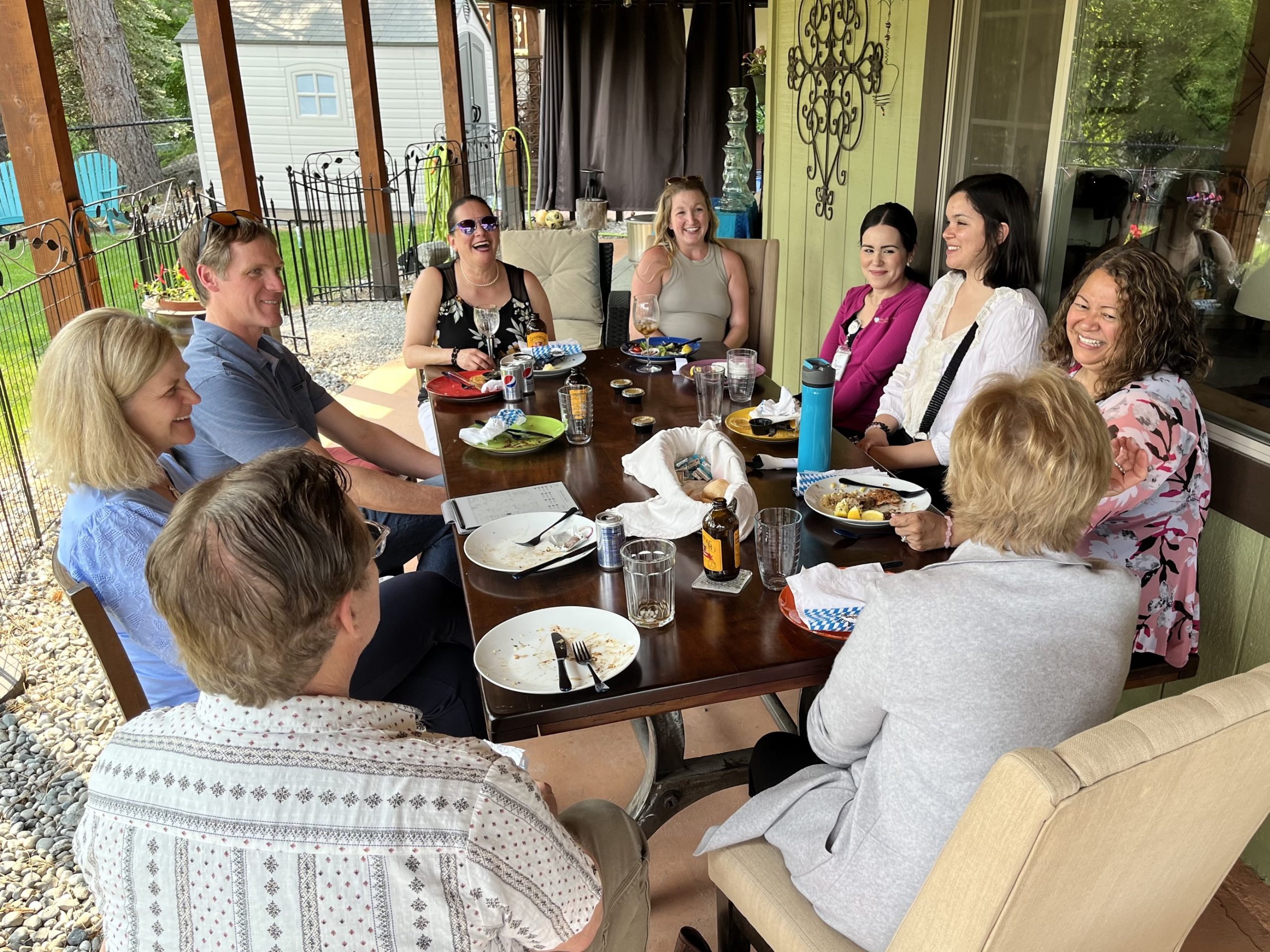
(above) Lunch in Leavenworth
Our last stop was in Leavenworth for lunch hosted by Ana Cortez, MPA ‘90, the City Manager for Carnation, Washington. We were joined by other Evans alumni working in agriculture and forestry fields as well as Mary Jo Ybarra and her team from Moses Lake/Quincy Community Health Center for a conversation about their involvement with the EPIC Paid Family and Medical Leave project. The lunch led to rich discussion centering community voices and highlighting cross-sector work. For the early-career professionals at the table, it was an opportunity to witness a real example of what a career in public leadership could entail.
Dean Sandfort and I reflect on this trip through Central and Eastern Washington with a sense of gratitude for new relationships that were started and existing relationships that were deepened. We also look forward to the work ahead to continue building educational pathways for public leadership to inspire public service and democratize public policy across Washington state.
We recently had the opportunity to connect with soon-to-be MPA graduate Davon Thomas. In addition to years of student leadership as an undergraduate and graduate student, he has participated in civic leadership programs such as Washington Student Achievement Council and Institute for a Democratic Future. We asked Davon about his path to Evans, his memorable experiences as a student, and his aspirations to make an impact for communities of color.
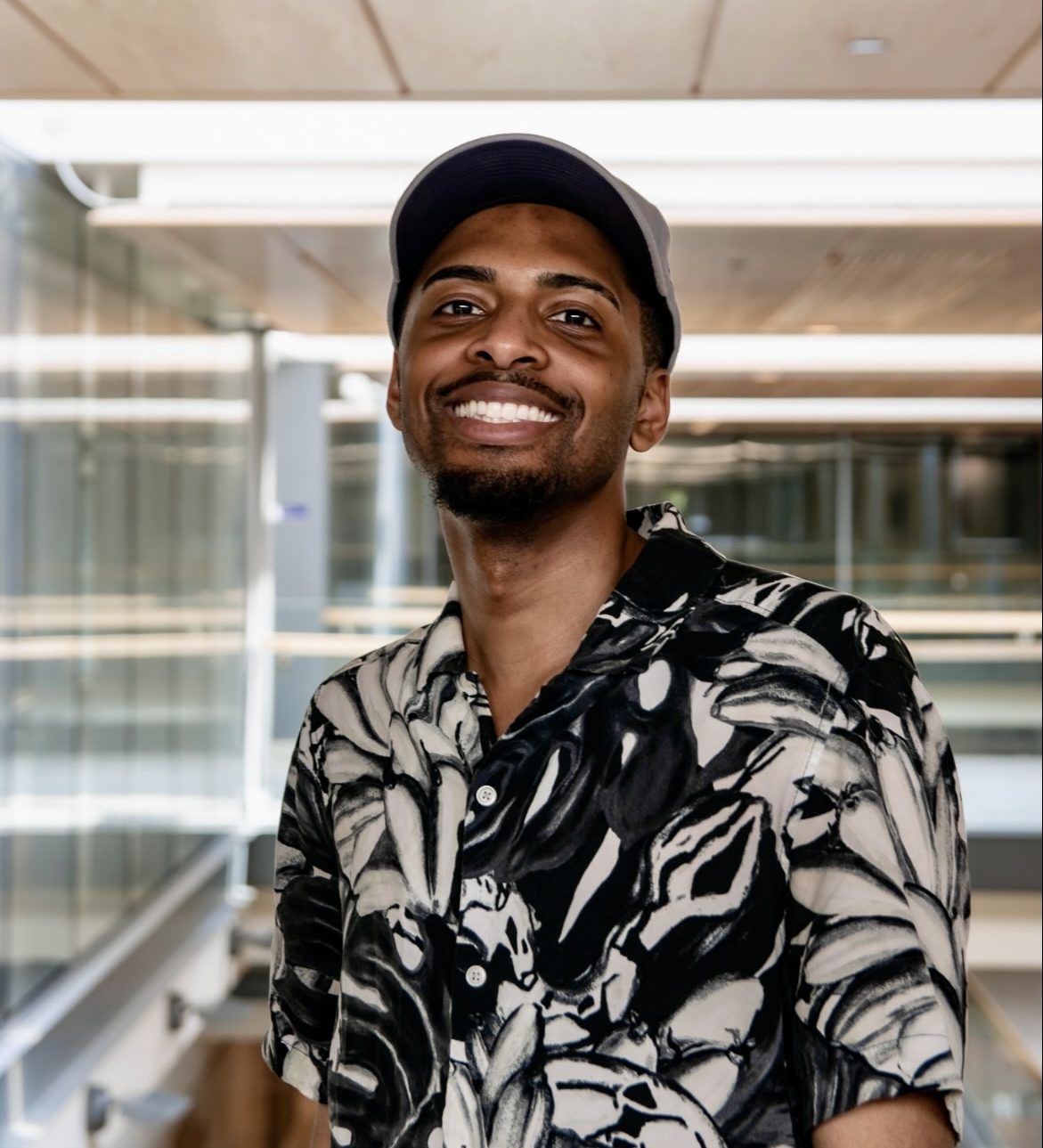
Growing up, my father was in and out of prison. Like many Black men, he is a victim of a system designed to determine your life expectancy by your zip code. As a Black man in America, I have always cared deeply about righting the injustices my father and many others have faced. I can’t make excuses for him, but I can recognize that when you grow up in an underfunded and overpoliced community, your future and life opportunities are bleak. My journey to the policy world and Evans is about justice for those suffering under oppressive systems. I want to utilize the tools here at Evans to create a brighter future for communities of color.
In 2019, I attended the JSI program at the Ford School of Public Policy at the University of Michigan. Prior to this, I had no intention of attending graduate school. JSI was an opportunity for me to see what the experience would look like and I thrived there. I took graduate-level policy, economics, and statistics courses. After the program was done, I knew I wanted to attend graduate school. JSI gave students from underrepresented backgrounds an experience like no other. We had students, staff, and faculty push us to be our best selves during this program. Now, most of the classmates in my JSI cohort have already or are currently pursuing their MPA.
In January 2022, three months after moving to Seattle, I was appointed by Governor Jay Inslee to the Washington Student Achievement Council (WSAC). WSAC is a state agency tasked with raising educational attainment throughout the state and I continue to have the privilege of representing graduate students on council. I get to work on issues such as retention and recruitment, telehealth for students, and increased funding for students. Without the reputation of the Evans School’s commitment to equity, courage, and service, I felt that this appointment would not have happened.
I am the Vice President of Internal Affairs for the Graduate and Professional Student Senate (GPSS), which serves as the representative body for graduate students at the UW. In my role, I am responsible for event planning for graduate students across campus and for hiring GPSS staff. In a post-COVID world, it’s very important for students to have events to attend and opportunities to relax. I served as the vice president and president of my student body as an undergraduate, and I’ve continued in student leadership as a graduate student at Evans. Those who join student government do so because it’s a service and at the root of my heart is service. I love this work and I’m grateful I get to serve my fellow students in this capacity.
Throughout the year, our cohort has spent ten intensive weekends meeting with leaders across Washington state, including local, state, federal, and native elected officials. Recently, we spent one full week in D.C. to meet with Democratic stakeholders, think tanks focusing on Arab American policy relations, and other leaders. This program has enlightened me on the issues impacting our own state. Policy in Washington is centered around Seattle and other major urban hubs, but having the opportunity to explore Eastern Washington and other rural areas reminded me why I went to graduate school in the first place – to improve the quality of life for underfunded and underrepresented communities. My north star, my heart, and my life are all rooted in service and I’m grateful to have participated in a program that aligns with my values.
I hope my impact is one of resilience and community. Graduate school has its trials and tribulations. There were more times than not when I wanted to drop out. However, I found a community here that pushed me to be better and do better. You might enter graduate school as an individual, but you leave here with a community. I’m better off for it.

I started college as a classical guitar performance major, but soon realized that I wanted to focus on more than just music. I switched to an individualized major so that I could focus on topics that had become most important to me—nonprofit leadership, sustainability, and communications.
Helping people—helping them find their way, helping them foster connections, helping them create community, helping them learn how they can protect the environment, helping them find ways that they can serve and support others—is what I am passionate about.
There are so many ways to help make the world a better place and I am still seeking to find my best path to do exactly that. I think that, so often, people simply don’t know where to turn and I hope to bridge that gap in some way with my career—strengthening and building communities through environmental education and an appreciation of the arts.
I am inspired by many nonprofit directors or presidents who spend so much time working tirelessly for the people they serve. Specifically, the president and vice president of an Oklahoma nonprofit organization called the Oklahoma Summer Arts Institute, Julie Cohen and Emily Claudé, were the initial inspiration for me to begin to consider a career in nonprofit leadership. This was the first time I had seen two women in charge of a large, successful nonprofit endeavor that made an enormous impact on so many kids’ lives and it really caught my attention.
Making new connections with other students and professionals in the field, learning about new topics, and experiencing life in Seattle is what I am most excited about!

I am a Nicaraguense immigrant living in a community where white supremacist culture persists and is memorialized in the namesakes throughout our city, streets, and schools. My hometown of St. Rose is part of an 85-mile stretch of chemical plants that pollute my home and community. Being at Villanova has opened my eyes to the impact of these injustices. Better aware of the depth of ignorance pertaining to these injustices and the inaction that persists, I recommitted to learning about the racial state and its impact on Latinas and how to efficiently empower Latinas to create change. My classes fueled my curiosity and taught me the power of fostering dialogue, a first step in bridging divides. Over the past three years, I have intentionally used my voice to build bridges and understanding among students in the predominantly white environment of my university. I began by facilitating dialogue that touches on privilege, power, and identity to hundreds of students at my university through the Villanova Diversity Skit. Through the Center for Access Success and Achievement, I am currently leading discussions on the lack of diverse art on our campus, as well as the fatigue students of color feel because of continued stereotyping and microaggressions. Simultaneously, I lead initiatives for organizations like Poderistas and Latinas Inspiring Furthering Education that increase Latina civic engagement. As I phone banked to help 2,000 Latinx voters register to vote in the state of Georgia, created designs that reached 100,000 people that inform and celebrate North Carolina Latinas, and marshaled a voting event for Latinas during the 2022 election, I began to see the beauty and power in our community. The impact of the work I initiated and assisted in shows me the change and justice I seek in Louisiana are possible, something I did not believe in before.
The Evans School welcomes Amaka Nnaji as a new postdoctoral scholar with the Evans School Policy Analysis and Research Group (EPAR). Dr. Nnaji received her Ph.D. in Development Economics from Lincoln University in New Zealand. She has served as a research fellow for several organizations focused on development economics in Nigeria. Before completing her doctoral work, Amaka received a master’s degree in Agricultural Development Economics from the University of Reading in England.
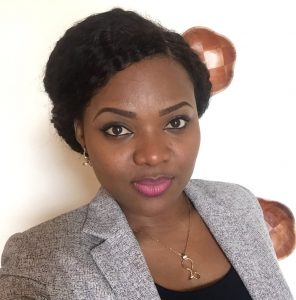
Arriving at EPAR in April 2023, the Evans School caught up with Amaka to talk about her research in development economics.
Evans: Congratulations on your postdoctoral research position at EPAR! Your professional path has focused on a host of economic and environmental topics within Nigeria. What were some formative experiences early on that helped you identify this particular policy research path?
Amaka: Thank you for the warm welcome. My interest in agricultural development economics, particularly in the gender-conflict nexus, comes from my experience growing up in Nigeria where smallholder farmers make up about 35% of the workforce with women contributing the most to crop agronomy with the least remuneration from farm proceeds. Also, the unprecedented impacts of drought and the resulting desertification of available arable land further worsen the situation. The obvious lack of gender-disaggregated and transformative research invariably resulting in the enactment of poor-functioning and ineffective policies further motivated me to pursue this research path.
Evans: Your dissertation and recent publications have focused on farmer-herder conflicts in rural Nigeria. Why is this such a critical issue in sub-Saharan Africa?
Amaka: Farmer-herder conflict is a critical problem in most sub-Saharan African Countries due to rapid population growth and the escalating effects of climate change. Rising temperatures and subsequent drought and desertification have reduced the availability of pasture for nomadic herders to graze their animals. Also, rising population growth has signaled increased crop production which sometimes results in the conversion of grazing reserves to farmland. As a result, sometimes herders graze their animals on farmer’s cropland resulting in a loss of crop yield and income. Some farmers may maim the animals or pursue herders out of their farmlands, herders retaliate, and the vicious cycle of farmer-herder conflicts ensues. Considering the negative impacts of climate change are not stopping anytime soon, there is a need to provide evidence to engender the enactment of suitable policies that enhance adaptation to the adverse conditions increasing the occurrence of these conflicts.
Evans: What are some of the biggest challenges you encounter when conducting research in rural communities and regions?
Amaka: Some challenges I have experienced conducting research in rural regions is a dearth of reliable secondary data on community population, number of farmers and farm size. Also, when carrying out surveys, the lack of efficient internet connectivity and unreliable transportation options through poorly maintained access roads are major problems. For my thesis, I had to collect data from remote conflict-affected regions, and these were the main issues faced by the field team.
Evans: Your published research focuses on many important areas for policy action – climate change, household consumption and food security, land use and farming practice – what are some immediate policy recommendations that stand out from your recent work?
Amaka: Some of my most recent work show that female farmers are more likely to be food secure when given more access to productive resources like land. This demonstrates the need for more gender-transformative policies to bridge the persistent gender gap in access to productive resources. Also, empirical evidence of both direct and indirect negative impacts of climate change induced farmer-herder conflicts on agricultural productivity shows the need for policies to facilitate the migration to more sustainable farming systems like ranching and paddock grazing in developing countries.
Evans: How do you see your research program evolving in the next few years?
Amaka: I have always been passionate about using academic research to support and influence public policymaking. In the next couple of years, I am looking forward to using spatial modelling techniques to facilitate the development of sustainable livestock production systems in developing countries. Also, working with the amazing team of researchers in the Evans School will enable me to contribute to research with clear social and political development relevance, that produces valuable evidence for the academic community, policymakers and non-governmental stakeholders in the continued fight for global gender equity, women’s empowerment, poverty reduction and inclusive growth.
Evans: We are lucky to have you join our community – welcome!
Amaka: Thank you!
